Introduction
For individuals with tooth sensitivity, using the right electric toothbrush can help alleviate discomfort while effectively cleaning their teeth.
Some top electric toothbrush recommendations for addressing tooth sensitivity include;
- Sustainable Tomorrow Zen Bamboo Electric Toothbrush: This electric toothbrush features extra soft bristles and includes a sensitive mode. Available for purchase on Sustainable Tomorrow store for around $80.
- Oral-B Pro 1000: Available for purchase on Amazon for approximately $40.
- Philips Sonicare ProtectiveClean 6100: Available on the Philips website for around $130.
These toothbrush models are designed with sensitive teeth in mind, featuring gentle bristles and pressure sensors to ensure a gentle yet thorough clean. Additionally, they are perfect for individuals with tooth sensitivity, offering multiple cleaning modes and a sensitive brushing option.
Explanation of sensitive teeth and its causes

Sensitive teeth occur when enamel wears down, exposing dentin and nerves. Causes include aggressive brushing, grinding, dental cleanings, and exposure to cold or acidic foods. Preventive measures include using a soft-bristled electric toothbrush with a pressure sensor and visiting a dentist for assessment. Good oral hygiene and desensitizing toothpaste can alleviate sensitivity. Understanding causes and taking appropriate measures can address this issue.
Overview of electric toothbrushes and their benefits
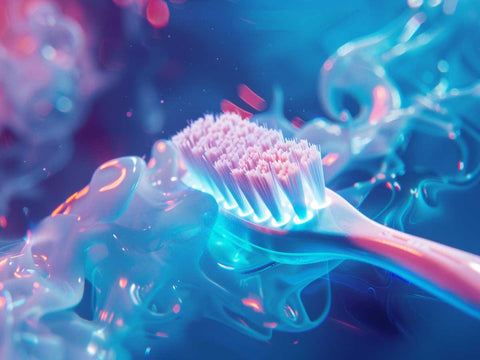
Electric toothbrushes have gained popularity in recent years due to their ability to effectively clean teeth and promote good oral hygiene. These specially designed toothbrushes utilize electric power to create rapid and consistent bristle movements, providing a thorough cleaning experience.
Their benefits include improved plaque removal, reduced risk of gum disease, and enhanced convenience and ease of use. This overview will explore the features and advantages of electric toothbrushes, highlighting their potential to enhance oral health and overall hygiene.
Insight into Tooth Sensitivity
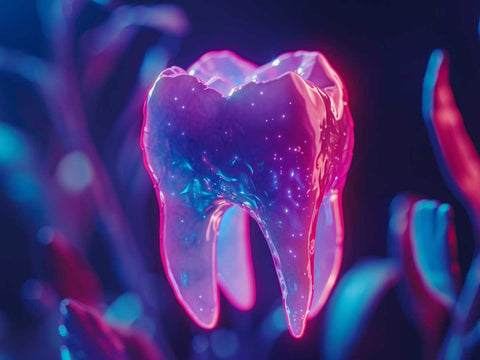
Tooth sensitivity can stem from various causes: receding gums, worn enamel, gum disease, decay, and grinding. Receding gums expose roots, lacking enamel protection, causing sensitivity. Worn enamel and gum disease also expose nerves, leading to sensitivity. Decay and cavities erode enamel, exposing dentin. Teeth grinding accelerates enamel wear, causing sensitivity.
Regular dental check-ups are crucial for early detection and treatment. Dentists identify receding gums, decay, or gum disease, offering timely interventions to prevent further damage and alleviate sensitivity. Professional cleanings during check-ups remove plaque and tartar buildup, lowering the risk of gum disease and decay. Consistent dental check-ups are paramount for maintaining oral health and managing tooth sensitivity.
Definition of tooth sensitivity
Tooth sensitivity occurs when enamel wears down, exposing dentin and nerves, leading to pain with hot, cold, sweet, or acidic foods. Triggers include decay, gum recession, grinding, improper brushing, and harsh dental products. Electric toothbrushes with pressure sensors offer gentle yet effective cleaning, reducing discomfort and preventing further enamel damage.
Common triggers for sensitive teeth
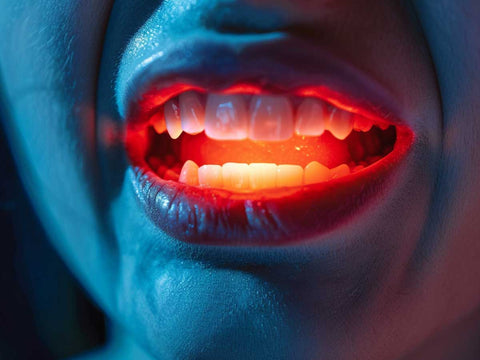
Electric toothbrushes offer several advantages over manual toothbrushes. The rotating or vibrating bristles of an electric toothbrush can provide a more thorough cleaning, reaching areas that may be difficult for a manual brush.
Additionally, the built-in timers in many electric toothbrushes can help ensure that you brush for the recommended two minutes. Some electric toothbrushes also come with pressure sensors that provide alerts if you are applying too much pressure, helping to prevent damage to your teeth and gums.
Benefits of Electric Toothbrushes

Using an electric toothbrush for sensitive teeth offers multiple benefits. Firstly, it effectively removes plaque, reaching areas often missed by manual brushing for a thorough clean. Secondly, built-in pressure sensors prevent excessive force, reducing discomfort and damage. Electric toothbrushes encourage longer brushing sessions with timers, aiding in optimal oral care. Improved oral health correlates with overall well-being, preventing gum disease and decay. For instance, the Sustainable Tomorrow Zen Bamboo Electric Toothbrush combines plaque removal, soft bristles, and a two-minute timer, ideal for sensitive teeth and enhanced oral health.
Effectiveness in removing plaque
Electric toothbrushes, with oscillating brush heads and sonic vibrations, excel in plaque removal, especially in hard-to-reach areas like the gum line. They offer softer bristles for gentle yet effective cleaning and customizable modes for individual needs. Pressure sensors prevent enamel damage by guiding gentle brushing.
Sonic vibrations for deeper clean
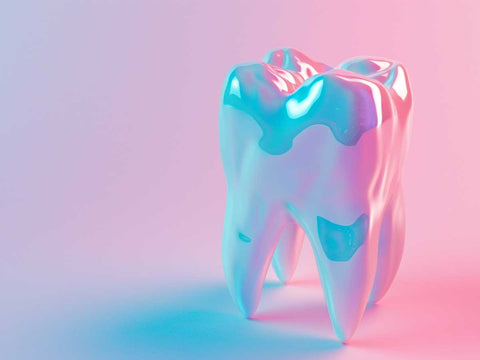
Sonic vibrations have revolutionized oral hygiene. Electric toothbrushes create rapid movements of bristles, up to 31,000 strokes per minute. These vibrations reach areas missed by manual brushing, removing plaque and bacteria thoroughly. This technology promotes healthier teeth and gums, making electric toothbrushes a popular choice for elevated oral care routines.
How Electric Toothbrushes Work
Electric toothbrushes use vibrating or rotating bristles for thorough cleaning, reducing sensitivity by removing plaque and stains effectively. Pressure sensors prevent damage by detecting excessive pressure, slowing down or stopping the brush. Customizable modes cater to individual needs, offering options like sensitive or whitening for a tailored brushing experience.
Comparison to manual toothbrushes
Electric toothbrushes offer superior cleaning with rotating or vibrating heads, ensuring thorough plaque removal. They often feature timers and pressure sensors to prevent over-brushing and gum damage. Specialized modes cater to individual needs, enhancing oral hygiene. While effective for gum disease prevention, battery life and accessibility can be drawbacks compared to manual brushes.
Cleaning modes available in electric toothbrushes
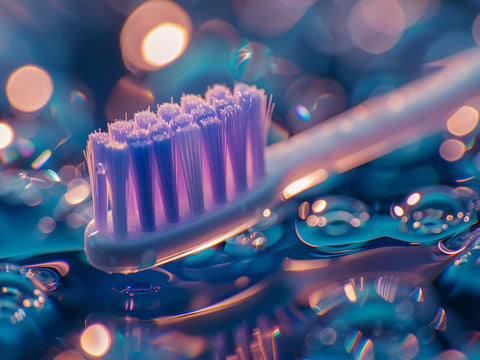
Electric toothbrushes offer different cleaning modes to cater to various oral care needs. One common concern is aggressive brushing, which can lead to gum recession and enamel erosion. To address this, many electric toothbrushes have a sensitive mode that provides a gentler brushing experience.
Excessive pressure is another issue that can cause harm to teeth and gums. Some electric toothbrushes have pressure sensors that alert users when they are applying too much force. These features help promote optimal oral health by encouraging users to practice proper brushing techniques and avoid potential damage.
Aggressive Brushing and Excessive Pressure
Aggressive brushing harms sensitive teeth, causing dental erosion and pain. Electric toothbrushes with pressure sensors prevent over-brushing by detecting excessive force, safeguarding enamel and reducing discomfort. Their softer bristles and efficient plaque removal minimize damage and irritation to teeth and gums compared to manual brushing.
External Links
- Toothaches: Causes, Symptoms, Diagnosis, Treatment, Remedies
- Receding Gums: Causes, Treatment, Surgery, and Prevention
Statistics
Factual sentences referenced across top search results:
- For 2 minutes twice a day is how long you should spend brushing your teeth according to the likes of the Australian Dental Association and the World Dental Federation. (electricteeth.com)
- A survey of our YouTube audience found that 57% had a smart toothbrush, yet 69% don't use the features after 3 months. (electricteeth.com)
- Not only were Electric Toothbrushes more efficient at removing plaque, dentists said they could also reduce incidents of gingivitis - an inflammation of the gums that can lead to tooth loss - by more than 17 per cent in three months. (dailymail.co.uk)
- Since 80% of sensitivity starts at the gum line, it's crucial to brush with a toothpaste that's good for your gums and a toothbrush or brush head with softer bristles to avoid damaging the gums. (oralb.com)
- Evidence produced by the Cochrane Oral Health Group shows when using a powered toothbrush for one month plaque was by reduce by 11% and by 21% after three months of use compared with when using a manual toothbrush. (dentistnewbury.co.uk)
- Gingivitis was also reduce by 6% after one month and reduce by 11% reduction after using an electric toothbrush three months. (dentistnewbury.co.uk)
- According to SingHealth, an estimated 40% of preschool children in Singapore can be affected by tooth decay before the age of 6. (fdc.sg)
- Prioritize the selection of products with a bristle rounding rate of not less than 80% The bristles that have been rounded are smoother and will not sting the gums. (bljcare.com)
- According to The Journal of Clinical Periodontology, “Two minutes and 150 grams was the optimum time and pressure for the average person's brushing regime.” (zentflex.com)


Share:
A Day in the Life of a Dental Hygienist
Electric Toothbrushes: Luxury or Necessity?